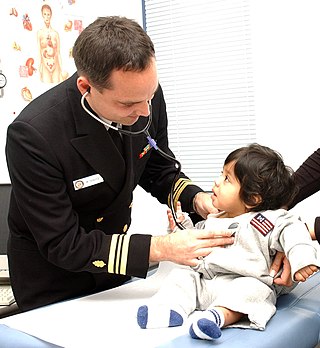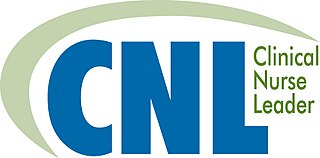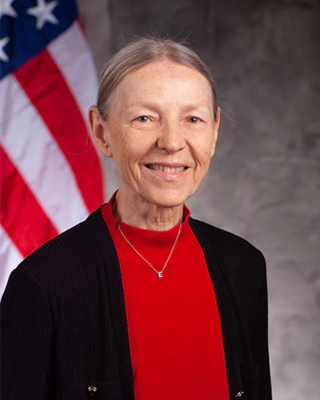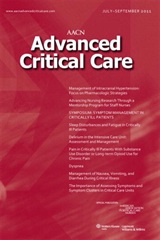The School of Nursing is the graduate school of nursing at Columbia University in the Washington Heights neighborhood of Manhattan, New York City. Founded in 1892, it stands as one of the oldest nursing schools in the United States.

A nurse practitioner (NP) is an advanced practice registered nurse and a type of mid-level practitioner. NPs are trained to assess patient needs, order and interpret diagnostic and laboratory tests, diagnose disease, formulate and prescribe medications and treatment plans. NP training covers basic disease prevention, coordination of care, and health promotion, but does not provide the depth of expertise needed to recognize more complex conditions.
An advanced practice nurse (APN) is a nurse with post-graduate education and training in nursing. Nurses practicing at this level may work in either a specialist or generalist capacity. APNs are prepared with advanced didactic and clinical education, knowledge, skills, and scope of practice in nursing.
A nurse educator is a nurse who teaches and prepares licensed practical nurses (LPN) and registered nurses (RN) for entry into practice positions. They can also teach in various patient care settings to provide continuing education to licensed nursing staff. Nurse Educators teach in graduate programs at Master's and doctoral level which prepare advanced practice nurses, nurse educators, nurse administrators, nurse researchers, and leaders in complex healthcare and educational organizations.
The Doctor of Nursing Practice (DNP) is a professional degree in nursing. In the United States, the DNP is one of three doctorate degrees in nursing, the others being the research degrees PhD and the Doctor of Nursing Science. The DNP is usually a short programme of study often online.
Nursing credentials and certifications are the various credentials and certifications that a person must have to practice nursing legally. Nurses' postnominal letters reflect their credentials—that is, their achievements in nursing education, licensure, certification, and fellowship. The letters usually appear in the following order:
A clinical nurse specialist (CNS) is an advanced practice nurse who can provide advice related to specific conditions or treatment pathways. According to the International Council of Nurses (ICN), an Advanced Practice Nurse is a registered nurse who has acquired the expert knowledge base, complex decision-making skills and clinical competencies for expanded practice, the characteristics of which are shaped by the context and/or country in which s/he is credentialed to practice. Clinical Nurse Specialists are registered nurses who have had graduate level nursing preparation at the master's or doctoral level as a CNS. They are clinical experts in evidence-based nursing practice within a specialty area, treating and managing the health concerns of patients and populations. The CNS specialty may be focused on individuals, populations, settings, type of care, type of problem, or diagnostic systems subspecialty. CNSs practice autonomously and integrate knowledge of disease and medical treatments into the assessment, diagnosis, and treatment of patients' illnesses. These nurses design, implement, and evaluate both patient–specific and population-based programs of care. CNSs provide leadership in the advanced practice of nursing to achieve quality and cost-effective patient outcomes as well as provide leadership of multidisciplinary groups in designing and implementing innovative alternative solutions that address system problems and/or patient care issues. In many jurisdictions, CNSs, as direct care providers, perform comprehensive health assessments, develop differential diagnoses, and may have prescriptive authority. Prescriptive authority allows them to provide pharmacologic and nonpharmacologic treatments and order diagnostic and laboratory tests in addressing and managing specialty health problems of patients and populations. CNSs serve as patient advocates, consultants, and researchers in various settings.
Helen Lorraine (Cook) Erickson is the primary author of the modeling and role-modeling theory of nursing. Her work, co-authored with Evelyn Tomlin and Mary Ann Swain, was published in the 1980s and derived from her experience in clinical practice. In 2006 she edited a book that provides additional information describing the relationships among soul, spirit, and human form.

Nurses in the United States practice nursing in a wide variety of specialties and departments.

Critical care nursing is the field of nursing with a focus on the utmost care of the critically ill or unstable patients following extensive injury, surgery or life threatening diseases. Critical care nurses can be found working in a wide variety of environments and specialties, such as general intensive care units, medical intensive care units, surgical intensive care units, trauma intensive care units, coronary care units, cardiothoracic intensive care units, burns unit, paediatrics and some trauma center emergency departments. These specialists generally take care of critically ill patients who require mechanical ventilation by way of endotracheal intubation and/or titratable vasoactive intravenous medications.
The American Nurses Credentialing Center (ANCC), a subsidiary of the American Nurses Association (ANA), is a certification body for nursing board certification and the largest certification body for advanced practice registered nurses in the United States, as of 2011 certifying over 75,000 APRNs, including nurse practitioners and clinical nurse specialists.

Clinical Nurse Leader (CNL) is a relatively new nursing role that was developed in the United States to prepare highly skilled nurses focused on the improvement of quality and safety outcomes for patients or patient populations. The CNL is a registered nurse, with a Master of Science in Nursing who has completed advanced nursing coursework, including classes in pathophysiology, clinical assessment, finance management, epidemiology, healthcare systems leadership, clinical informatics, and pharmacology. CNLs are healthcare systems specialists that oversee patient care coordination, assess health risks, develop quality improvement strategies, facilitate team communication, and implement evidence-based solutions at the unit (microsystem) level. CNLs often work with clinical nurse specialists to help plan and coordinate complex patient care.

Nursing is a profession within the healthcare sector focused on the care of individuals, families, and communities so they may attain, maintain, or recover optimal health and quality of life. Nurses may be differentiated from other healthcare providers by their approach to patient care, training, and scope of practice. Nurses practice in many specialties with differing levels of prescription authority. Nurses comprise the largest component of most healthcare environments; but there is evidence of international shortages of qualified nurses. Nurses collaborate with other healthcare providers such as physicians, nurse practitioners, physical therapists, and psychologists. Unlike nurse practitioners, nurses typically cannot prescribe medications in the US. Nurse practitioners are nurses with a graduate degree in advanced practice nursing. They practice independently in a variety of settings in more than half of the United States. Since the postwar period, nurse education has undergone a process of diversification towards advanced and specialized credentials, and many of the traditional regulations and provider roles are changing.
The University of Sydney Susan Wakil School of Nursing and Midwifery, also known as Sydney Nursing School is the nursing school of the University of Sydney in Australia. It was founded in 1991 initially as The University of Sydney Faculty of Nursing. On 30 April 2018 it joined the newly combined Faculty of Medicine and Health.
Nursing is the largest healthcare profession in the United States, with more than 3.1 million registered nurses. Between 2012 and 2022, employment for nurses is projected to grow by 19 percent, which is more than any other profession. Nurses make up the largest component of staff in hospitals but are also able to provide care in clinic settings, patient's homes, schools, nursing homes, public health agencies, and mental health centers. In addition, nurses can be found in the military, in industry, nursing education, and do health care research. Nurses in these various roles and settings can provide direct patient care and case management, but also develop and establish nursing practice and quality standards within complex healthcare systems. As each degree can provide a different level of care for patients and function in vastly different roles, it is important to differentiate between them. The levels of nursing degrees have different educational requirements, licensure, and credentialing that can vary state to state.
An acute care nurse practitioner (ACNP) is a registered nurse who has completed an accredited graduate-level educational program that prepares them as a nurse practitioner. This program includes supervised clinical practice to acquire advanced knowledge, skills, and abilities. This education and training qualifies them to independently: (1) perform comprehensive health assessments; (2) order and interpret the full spectrum of diagnostic tests and procedures; (3) use a differential diagnosis to reach a medical diagnosis; and (4) order, provide, and evaluate the outcomes of interventions. The purpose of the ACNP is to provide advanced nursing care across the continuum of health care services to meet the specialized physiologic and psychological needs of patients with acute, critical, and/or complex chronic health conditions. This care is continuous and comprehensive and may be provided in any setting where the patient may be found. The ACNP is a licensed independent practitioner and may autonomously provide care. Whenever appropriate, the ACNP considers formal consultation and/or collaboration involving patients, caregivers, nurses, physicians, and other members of the interprofessional team.
The End-of-Life Nursing Education Consortium (ELNEC) project is a national education initiative whose mission is to improve palliative care. The project provides an undergraduate and graduate nursing faculty, CE providers, staff development educators, specialty nurses in pediatrics, oncology, critical care, and geriatrics, and other nurses with training in palliative care so they can teach this information to nursing students and practicing nurses. ELNEC is a partnership between the American Association of Colleges of Nursing (AACN), Washington, DC and the City of Hope, Duarte, CA. The project provides undergraduate and graduate nursing faculty, CE providers, staff development educators, specialty nurses in pediatrics, oncology, critical care, and geriatrics, and other nurses with palliative care training. Once trained, these healthcare professionals go on to teach this essential information to nursing students and practicing nurses. The project, which began in February 2000, was initially funded by a major grant from The Robert Wood Johnson Foundation (RWJF). The National Cancer Institute (NCI), American Association of Colleges of Nursing (AACN), US Cancer Pain Relief Committee, the Aetna, Archstone, Oncology Nursing, California HealthCare, Milbank, Stupski, Open Society, and Cambia Health Foundations, and the Department of Veterans Affairs (VA) have provided additional funding.

Elaine Lucille Larson is an American infectious disease specialist. As a Professor of Epidemiology at the Columbia University Mailman School of Public Health, she has published four books and more than four hundred articles on the subjects of infection prevention and control, disease epidemiology, and related issues. In 2017, Larson was named a "Living Legend" by the American Academy of Nursing, the Academy's highest honor.

Kate Payne was an American nurse, lawyer, and bioethicist. She was an associate professor at the Center for Biomedical Ethics and Society at Vanderbilt University Medical Center.







